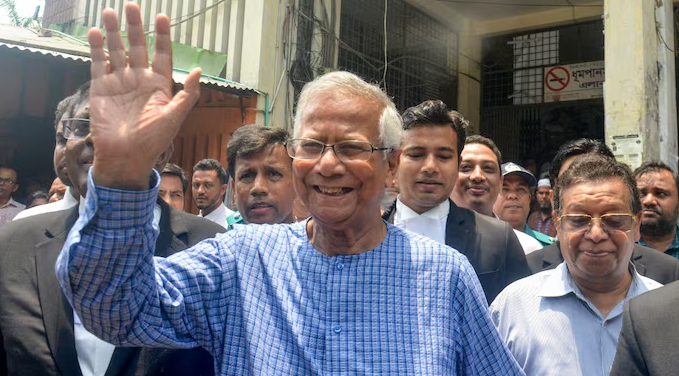Dhaka: Bangladesh’s interim government has granted magisterial powers to the Army for two months to improve law and order in the country and prevent “subversive acts”.
The Ministry of Public Administration issued a notification on the government’s decision Tuesday, saying it will be applicable with immediate effect.
The powers will be given to commissioned officers of the Army. The order will remain in force for the next 60 days.
Section 17 of the Code of Criminal Procedure, or CrPC, which awards Army officers the status of special executive magistrates, says these officers shall be subordinate to the district magistrates, or deputy commissioners, bdnews24.com reported.
This authority including arrest and dispersal of unlawful rallies has been conferred upon commissioned officers of the Army.
In self-defence and extreme need, the officer can open fire, said an adviser to the interim government Tuesday, The Daily Star newspaper reported.
“We are witnessing subversive acts and disrupted stability in several places, especially in the industrial areas across the country. Given the situation, Army personnel have been given magistracy power,” Law Adviser Asif Nazrul said.
He added that he believed the army personnel would not misuse this authority.
Another adviser, requesting anonymity, said, “Police are yet to be properly functional. Subversive activities are taking place…”
Many police personnel in Bangladesh have been absent on the streets since the fall of the Sheikh Hasina-led government August 5 amid a mass uprising.
Before and immediately after the ouster of Hasina, police faced unprecedented public fury as mobs set fire to their vehicles and properties and ransacked police facilities in reprisal for the law enforcers’ use of excessive force on demonstrators.
Following the attacks, Bangladesh Police Subordinate Employees Association announced an indefinite strike August 6. The strike was withdrawn August 10, following a series of meetings with the then adviser to home ministry Brig Gen (retd) M Sakhawat Hussain. Still, many police officers remained absent from work.
Former secretary Abu Alam Mohammad Shahid Khan said considering the current law and order situation, the Muhammad Yunus-led interim government’s decision is timely and necessary.
“I believe the move will lead to a visible improvement in law and order across the country,” he said.
However, Veteran lawyer ZI Khan Panna disagreed with the decision.
“It is not right. Has the government lost confidence in the magistrates? It is not right for army personnel to perform magistrate’s duties under the deputy commissioners. It would not be wise to mix army personnel with the general public,” The Daily Star newspaper quoted Panna as saying.
